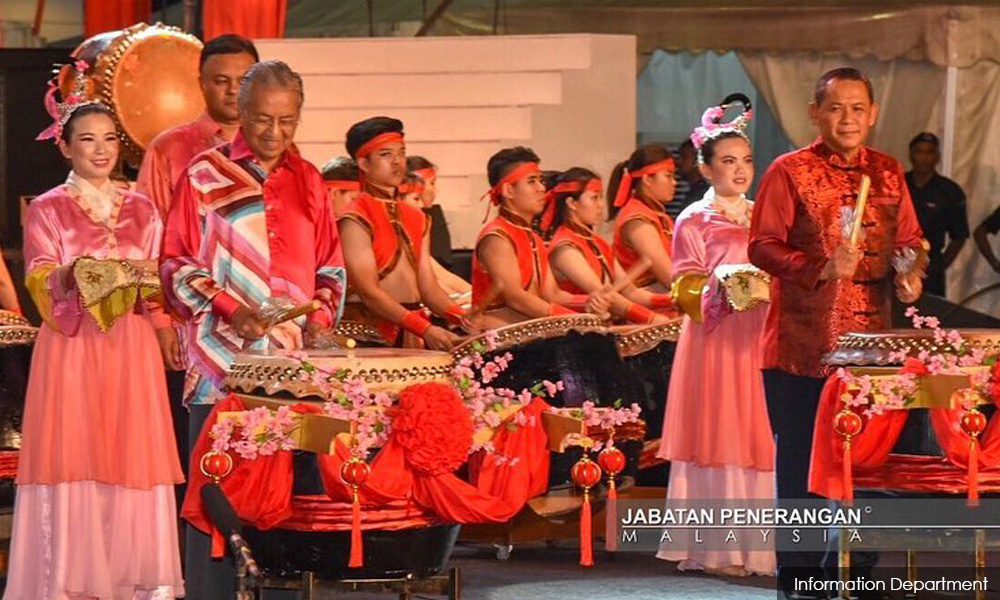Revamp our education system and policies
LETTER | China has shown to the world that all nations and the lawmakers must work together to take on new challenges and new initiatives to create new innovative things to help nations worldwide get work done faster, bigger, efficiently and meticulously. And, most importantly to make it cheap.
That means moving out from human labour dependency, instead to use 5G technologies, e-automation works and "robots".
Yes! We have now entered into a new frontier of the robotic and android era.
This means the Education Ministry in Malaysia has to tailor the education system to produce graduates ready to take on new jobs at home and in the International markets as well.
Today, everybody knows China is a global Big Force, rather the most powerful besides the United States. Yes! Already people see China as the next Number One World Force.
China inevitably is looking set to take over the International financial hub/body, from the US. In fact, the yuan currency is strong and by and large, people are encouraged to dump the US dollar for the yuan. Now, before it is too late.
For your information, under the sky in the last few decades, China has done many great things. There is no nation, including the US, that can deny China's achievements in the last two decades.
So, to deal and communicate with the Chinese in trade and commerce, more people are learning Mandarin already, to keep abreast and to catch up with the Chinese.

And, it is hearsay that there are schools in Europe running Mandarin classes, to prepare the children to be ready to take jobs in populous Chinese markets.
This is a wise move.
So, the minister of education in Malaysia should not hold on to archiac policy. He should help students learn to read, write and speak in a few more languages.
When our children are proficient in other languages, such as English, Mandarin and Tamil, they will not have any problems securing a job, anywhere.
Nowadays, Chinese nationals can speak and write in English, besides Mandarin. Some of them are multilingual. Apparently, they can speak in Bahasa Malaysia, rather fluently, too.
Yes! There are many people in Europe and England who are now learning Mandarin in preparedness to take on the global dealings in the Chinese markets.
This means, to make yourself employable in the international market, you need to be at least bilingual. That is, to speak, read and write in English and Mandarin, to begin with.
Today, when you can speak, read and write in three languages (Bahasa Malaysia, English and Mandarin) then you will stand a better chance to get employment anywhere you go.

For your information, this was never a problem for Malaysians in the past. You see, Malaysians were multilingual. Generally, they spoke, read and wrote in Bahasa Malaysia, English and Mandarin. Also, the Indians spoke, read and wrote Tamil. This is an Indian language widely used.
In the past English was used as the medium of teaching in government vernacular schools in Malaya.
There were different vernacular schools, then. So parents could send their children to either an English vernacular or an Indian vernacular or a Chinese vernacular or a Malay vernacular school.
Now you know how Malaysians could speak more than two languages.
One of the two languages taught in schools then was Malay, a compulsory subject taught in class in all vernacular schools from the year 1960.
Malay was a subject first taught in English medium schools in 1957. At that time students were told it was not a compulsory subject for exams, so students could walk out of the exam hall on exam day. This continued till the end of 1959, and beginning 1960, that is thereafter, Malay became a compulsory subject to pass school exams.
There you go! That was when (from 1960) all students needed to get a pass mark in the Malay subject in order to get a pass for the full school exam.
Now, you know why students of yesteryear can speak, read and write in two languages (Malay and English) fluently.
Most people were trilingual in the old days
Oh yes! For the Chinese and Indian students, they can add another language to the list. That is Mandarin for Chinese and Tamil for Indians.
In the old days, most Malaysians were trilingual.
Unfortunately, since the government converted the vernacular schools to national-type schools, the Education Ministry has changed the medium of teaching from English to Bahasa Malaya.
Though English was taught as a subject in class in all the national-type schools, but it was not enough for a student to master the English language.
Thus, why the students’ literacy and proficiency in English is poor.
Generally, the students can hardly speak and write in proper English, i.e. in a full sentence.
This handicap continued until the students graduated from their tertiary studies in the university.
And, sadly, they then realised it was difficult to get a job because the employers were looking for candidates who have a good command of spoken and written English.
As a result, many graduates were then jobless and forced to take on any job offer that came along.
On the contrary, the Chinese and Indian students spoke Malay extremely well. This proves that the country does not need to run exclusive Malay schools. As long as the language remains a compulsory subject to pass school exams - then every student will get to master the Malay language in school.
Well, today, the students should also consider doing Mandarin in school to stay competitive in the job market, etc, etc.
The reason is when there are only a few job vacancies around town, then the new graduates should try looking for jobs elsewhere, like overseas, such as in China, Hong Kong and Taiwan, etc, etc.

I mean, in my opinion, Education Minister Maszlee Malik (photo) should forget about playing politics and discriminatory policies. It is time to think and do the needful to help get new graduates employed and at the same time, to keep unemployment down to the minimum.
To achieve this, the existing education system should be reverted back to what it was in 1958, when the government was running English medium schools nationwide.
Oh yes! The schools should also hold Pupil’s Own Language (POL) classes, where students can take Mandarin lessons or perhaps other mother tongues, like Tamil, after school hours.
Like it or not, the present education system is not tailored to help get graduates to become employable in the domestic and international markets.
This message is posted to Education Minister Maszlee. Now is the time to change for the betterment of Malaysians - and of the nation's future.
LAU BING is a community activist and writer based in Subang Jaya.
The views expressed here are those of the author/contributor and do not necessarily represent the views of Malaysiakini.
RM12.50 / month
- Unlimited access to award-winning journalism
- Comment and share your opinions on all our articles
- Gift interesting stories to your friends
- Tax deductable
